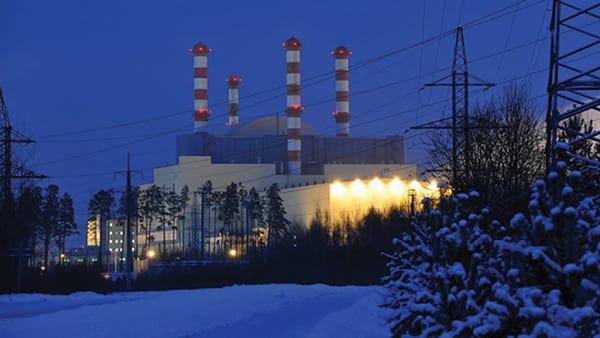Russia and China Expand Nuclear Cooperation
Russia and China have agreed to expand cooperation on nuclear energy, with Russia to build another two reactors in China in addition to expanding cooperation on fast-reactor technology and floating nuclear plants, Russia’s state-owned nuclear firm Rosatom said in a November 8 statement.
The two nations, which share a 4,200-kilometer-long border, have worked together on nuclear energy for decades, but the cooperation has ramped up as Russia has moved to expand export markets for its advanced nuclear technology and China has dramatically expanded its nuclear generation capacity to stay ahead of surging demand.
The core of the most recent deal is the Tianwan Nuclear Power Plant that Rosatom built in Jiangsu Province. Unit 1 entered service in 2006 and Unit 2 in 2007. Units 3 and 4 are currently under construction, with operations slated for 2018. All four are VVER-1000 designs. Units 5 and 6, based on Chinese technology, are planned but on hold.
On November 8, Prime Minister Dmitry Medvedev and Premier Li Keqiang formally agreed to proceed with an additional two Russian-supplied reactors, to be designated Units 7 and 8, Rosatom said in the November 8 statement.
In addition, Rosatom said, discussions for other plants are in the works, as are plans for “cooperation in floating nuclear power plants as well as in the promising area of fast neutron reactors.” Russia has been a driving force in developing fast-reactor technology, most recently commissioning Unit 4 at the Beloyarsk Nuclear Power Plant, the first of its BN-800 design (Figure).

Russia’s floating reactor project has been somewhat less successful, with the 70-MW Akademik Lomonosov plant experiencing delays and cost overruns. China is reportedly working on its own floating nuclear plant designs, though the project is still in the early stages. The two nations signed a cooperation agreement on floating nuclear technology in 2014.
—Thomas W. Overton, JD is a POWER associate editor (@thomas_overton, @POWERmagazine).